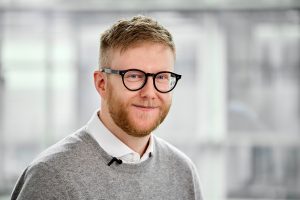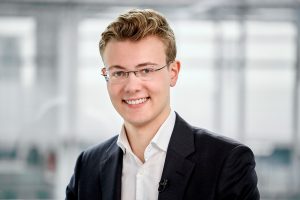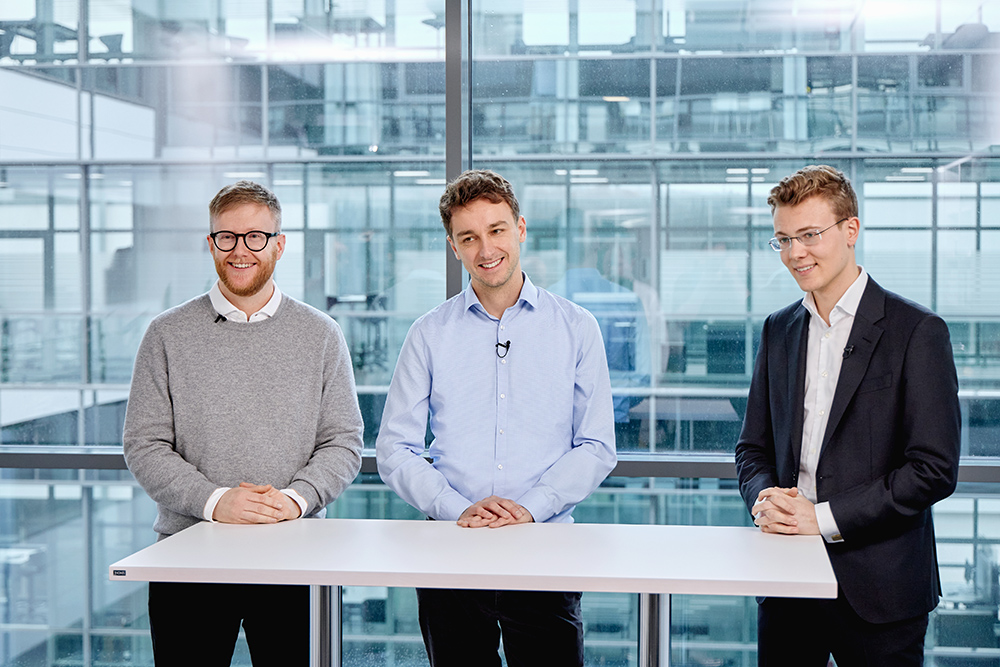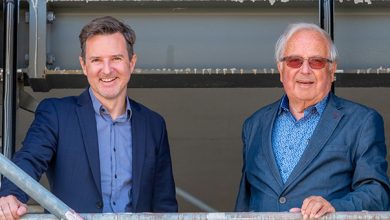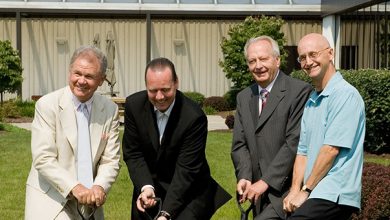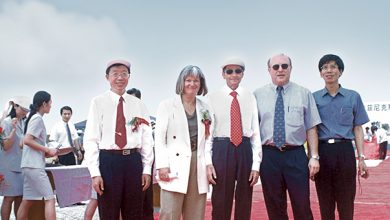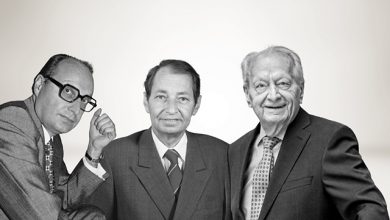The next generation is a critical topic for every family business. In an interview with UPDATE, three representatives of the next generation of the founding families reveal what Phoenix Contact means to them and where they see themselves and the company over the next few decades./>
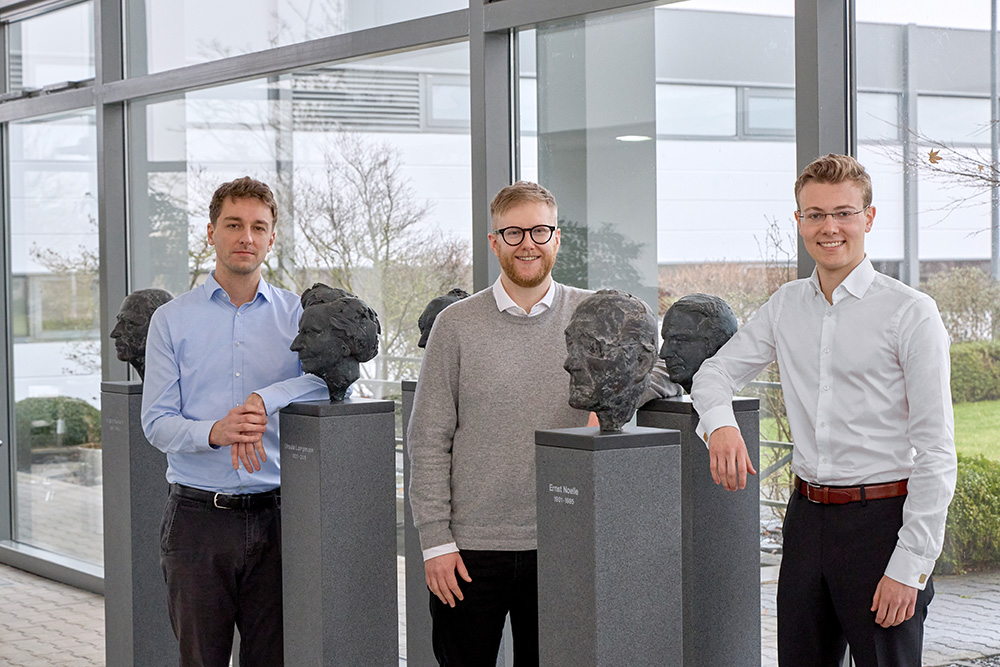
They represent the next generation at Phoenix Contact: Thomas Eisert, Robert Braunbehrens, and Tim Hohage have prominent ancestors and know and appreciate their company in many ways – they also bring new perspectives and unbiased thinking to the group of shareholders.
UPDATE: Mr. Eisert, Mr. Braunbehrens, Mr. Hohage, all three of you grew up with the Phoenix Contact company. What role did Phoenix Contact play in your childhood and younger years?
Thomas Eisert: Of course, the company was always present. But my upbringing was based on traditional values here in Blomberg, and we didn’t make much fuss about names and origins. That was important to my parents. Our visits to the Hannover Messe, for example, were always a highlight for me, even as a child. They still are, by the way. Not until I left Germany did I realize the importance of my last name. During my time at the university, I found it fascinating that for me, many of the theoretical topics covered in lectures could be immediately observed in practice.
Robert Braunbehrens: Everyone in my class knew who I was, of course. Otherwise, though, my family was and has been a very normal one. And Phoenix Contact simply always was a part of it, was always present.
Tim Hohage: (laughs) I’m not even from the East Westphalia area. My family roots stem from the Berg family. My great-grandfather Eugen Berg was one of the founders of Noelle & Berg, now Phoenix Feinbau in Lüdenscheid. For many years, my grandfather was the general manager of Phoenix Feinbau, so I grew up around punch presses, cutting oil, and the smell of hot metal.
UPDATE: What personal experiences have you had with and at Phoenix Contact or Phoenix Feinbau?
Thomas Eisert: I did a three-year apprenticeship here as an industrial management assistant before I took up my course of studies. So, outside of family ties and being a member of the shareholder group, I have a lot of hands-on experience in the company.
Robert Braunbehrens: We were never pushed to start here. But I’ve also completed several internships here, so I know my way around campus pretty well.
Tim Hohage: After I graduated from high school, I did a three-month engineering internship at Schieder, so I’m familiar with the basics of our production, and I was also at Protiq for a while. (laughs)I even know where the speed cameras are in the area. Last summer, I spent a month at our subsidiary in the USA. Added to that are another few weeks in Lüdenscheid. Thanks to Phoenix Contact, I have a few great ideas and inspirations for my Business Administration studies.
UPDATE: All three of you are still very young and already shareholders in a billion-dollar company. There are not very many people in the world who are in your situation. Is that something burdensome or stressful?
Robert Braunbehrens: What we have is a responsibility. That will never go away, that has always been clear. If I were to say that it doesn’t affect me, that wouldn’t be true. Yet all three of us are lucky enough to have grown up in relatively normal, down-to-earth families. In a really small, beautiful town where people all stayed grounded. That has left its mark on us. Sometimes when we are here, at a lecture, for example, I often think: Man, how is it that people are so good here? That in itself already makes you a little humble.
Tim Hohage: It’s definitely not a burden, but we do feel the responsibility, because of course we do know that more than 22,000 employees are attached to this company, many of them with families. We are not directly involved in operations, but we do have a steering role and are thus indirectly jointly responsible.
UPDATE: How well does the close relationship between the Eisert families and the founders of Phoenix Feinbau really work?
Robert Braunbehrens: It’s a family business, with a group of shareholders that meets often. Our interactions with one another is based on our values as partners and family members, so shares don’t play a role.
Thomas Eisert: In our generation, we have been raised in the same manner as it was recently legally formalized – as a company. We hold company meetings and also enjoy family visits, and we also share information quickly by phone on the go.
Tim Hohage: For a long time, the fact that we were originally formed on the basis of two companies has been nothing more than a legal formality. In the family, we have always seen the company as a single entity. We see ourselves as one Phoenix Contact family. Especially in our generation.
UPDATE: What does the key phrase corporate culture mean to you? From your perspective, what makes Phoenix Contact different from other companies?
Thomas Eisert: When I was doing my apprenticeship, a new colleague from a large company based in the region came to us, and we started a conversation. He was happy that he would not be just a number here, but that he would be perceived as a human being. When I heard this, I was happy and touched as well.
Robert Braunbehrens: For me, corporate culture is about looking forward to work and my colleagues in the morning. Easily said – but it has to be lived first. It starts with things that may seem trivial at first glance, such as greeting each other at the company. I was impressed by this; it’s not the case in other companies.
Tim Hohage: The passion for technology, as practiced in the weekly engineering rounds, for example, is truly unique. In addition, I find the commitment dedicated to perfect even the smallest and seemingly unimportant products in our company simply fascinating.
UPDATE: What does the topic of All Electric Society mean to you?
Robert Braunbehrens: China is producing solar cells in the range of 300 gigawatts this year. That’s more than all other sources of power generation combined. By the end of the decade, that could be even as high as a terawatt. Every year, global demand for power increases by the size of consumption in France. And we’re prepared. We’re in the right industry, where incredibly exciting things are taking place. The entire human race is reorienting itself, deciding all over again how we want to live. And we help to shape that; we’re playing an active part in it. That’s what the All Electric Society is all about for me.
Thomas Eisert: We are simply in the right place at the right time. We need to build a new global economy. That means making changes. We are fortunate to have the right products and to have recognized the need for change early …
Robert Braunbehrens: … It’s not luck! It is the result of hard work, making the right preparations, and choosing a strategic direction.
Tim Hohage: We are really well positioned with our product portfolio, so I think our future will really be good in the next decade …
Thomas Eisert:… and far beyond, over the next 30 or 40 years. After all, this transformation will not be implemented and completed quite as quickly if you look at the dimensions. We have an opportunity here that many simply do not have. After all, our lives are in the future, not in the past. All of us here at Phoenix Contact can help shape this future.
UPDATE: Do you believe that at some point family members will once again be responsible for the operational management of the corporation?
Thomas Eisert: (grins) Biologically, sure, it’s possible. It is also legally possible. So, theoretically it is possible.
Tim Hohage: The option is available, of course …
Robert Braunbehrens: … but we all agree that if there is anyone that comes forward to say that he or she wants to do this, it definitely has to be the best person for the job. It’s a commitment we have put on ourselves. And achieving that is really hard. Our responsibility is towards the company, it’s not about the self-fulfillment of the members in our family group. Just looking at our current management team, we see a lot of great people at work there. You’d have to outperform them first. So, right now, that’s not realistic.
